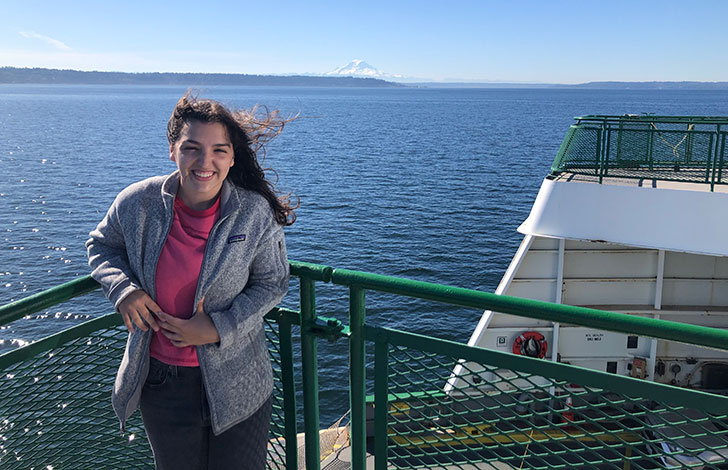Dayton Engineer

Engineered for Students, by Students
By Georgia Mergler '98 Senior Associate Director, University of Dayton
Twenty-one years ago, an engineering student had a cultural epiphany while on an immersion trip with the Center for Social Concern. That epiphany became the seed for what is now a thriving ETHOS immersion program.
ETHOS immersions offer students the opportunity to work on a humanitarian issue with a nonprofit partner. The experience helps students build cultural competence while putting their engineering knowledge into real-world practice.
“ETHOS began as a grassroots effort by students to identify and develop partnerships through which more students could have immersion experiences,” said Kelly Bohrer, executive director of the ETHOS Center. Since then, more than 500 students, from all engineering disciplines, have done immersions in 20 different countries across four continents.
Senior mechanical engineering student Elise Clement is one such student. Clement spent 12 weeks on a small island in Puget Sound working with Burn Design Lab, a cookstove development nonprofit. Her project team was tasked with improving production speed and efficiency at a cookstove manufacturing factory in Uganda.
Clement, who has a passion for sustainability, said the experience made the concept of human-centered design come to life.
“Working on behalf of a factory that is not in the U.S. forced me to step outside myself and think about things from a different perspective. I was designing production solutions for people who were using hand tools, not machines, to mass-produce cookstoves,” she said.
Working with a small nonprofit also gave Clement the opportunity to work autonomously on a variety of tasks. “I learned how to work independently. No one was specifically laying out all the steps for me,” said Clement.
According to Bohrer, many students have that same experience.
“As a result of participating in an immersion, many students become better systems thinkers and learn to be comfortable with the unknown and interact with, and appreciate, people from other cultures. Employers highly value these skills,” said Bohrer.
Aside from engineering skills, Clement said the experience of being so far from home, without a support network, also helped her grow personally.
“I’m thankful to the donors who made this experience possible. Not only did I gain new insights and skills, but it gave me the opportunity to be more independent and see a different part of the U.S. I might not have otherwise. And because my travel and living expenses were covered, I didn’t have to go further into debt to have the experience,” she said.
Clement recommends immersion trips to all interested students and, thanks to One Day, One Dayton donations to the School of Engineering Dean’s Fund for Excellence, ETHOS immersion trips are more accessible than ever.
“If a student feels called to do an immersion, we don’t want money to be the barrier. Donations allow us to extend this hands-on learning opportunity to more students. And when students don’t have to worry about the expense, they are able to more fully immerse themselves in the experience,” said Bohrer.
According to Bohrer, the future of the ETHOS Center looks bright as new potential partners and research projects are being identified and student interest in immersions continues to grow. “Our challenge now is to build capacity to meet the demand for student involvement. Donors, like those who have supported the School of Engineering Dean’s Fund for Excellence in the past, will be key to that effort,” said Bohrer.
